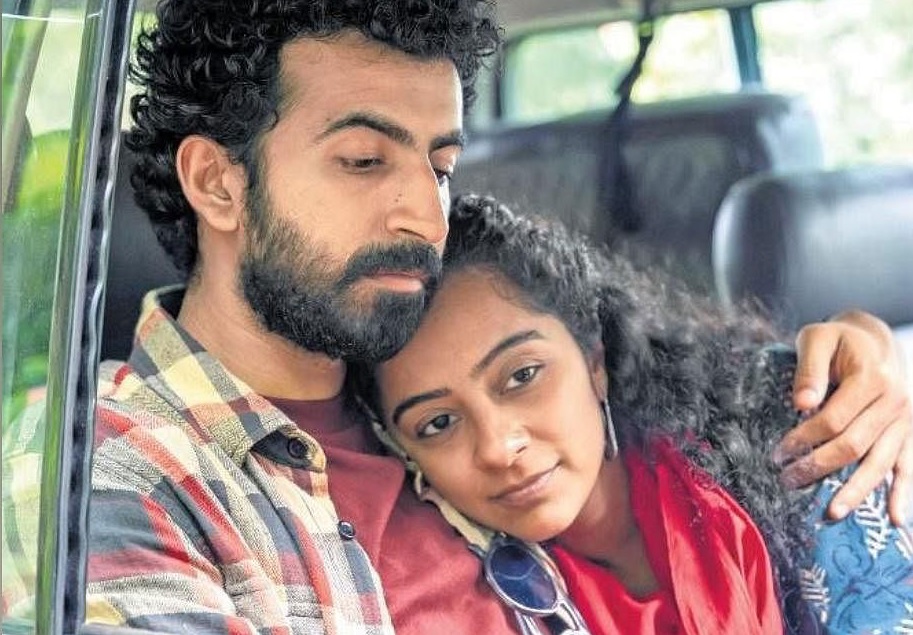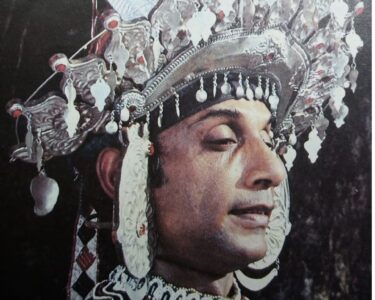“Paradise” is the latest film by well-known Sri Lankan director Prasanna Vithanage. The movie is being shown in theaters worldwide and has already received international praise. Produced by Newton Cinema of India and presented by Mani Ratnam’s Madras Talkies, this film features a diverse cast from Malayali, Tamil, Muslim, and Sinhala communities. Unlike one of Vithanage’s earlier films, “Purahanda Kaluwara” (Death on a Full Moon Day, 1997), which was censored in Sri Lanka, “Paradise” escaped censorship due to its international recognition comments Dharsana Mendis .

Captivating
The movie is “Paradise” , encouraging viewers to reflect on their own beliefs. It represents a significant step in the director’s career and inspires other artists to be more aware of global socio-political issues.
The story begins with the Sri Lankan government’s shocking announcement that the country is bankrupt, leading to a severe social crisis. As people struggle with shortages of food, medicine, gas, and fuel, along with long power cuts and rising prices, they take to the streets in protest despite the ongoing COVID-19 pandemic. Although the movie focuses on Sri Lanka’s domestic crisis, its themes are relevant to many societies facing similar issues under capitalism.
Irony
Despite the collapse of the tourism industry, some foreigners, particularly from India, took advantage of lower hotel costs to visit the troubled “paradise.” The name “Paradise” was given to Sri Lanka by European travelers in the Middle Ages, inspired by the poet Amir Khusrau’s praise of Kashmir. However, after independence, Sri Lankan leaders used this name for political and business purposes, eventually leading to the country’s bankruptcy. The director skilfully highlights this irony throughout the film.
The story follows a middle-class couple from Kerala, Kesav (Roshan Mathew) and Amritha (Darshana Rajendran), who visit Sri Lanka to celebrate their fifth wedding anniversary on a budget. They stay in a vintage bungalow surrounded by tea plantations and the shanties of Tamil estate workers. While enjoying the beautiful scenery, they hear a gunshot, which turns out to be from an animal hunt. Kesav, who is focused on his business goals, becomes happy when he learns that his application to Netflix to produce a Hindi version of “Squid Game” has been approved. Meanwhile, Amritha, who is more interested in nature, foils a hunting shot, symbolizing her innocence and the vulnerability of the estate workers.

The movie explores themes of social injustice, state violence, and the struggles of the poor and oppressed. The estate community lives in poverty, with no basic facilities since the British colonial era. The police brutality against suspects, shown in the film, is a reflection of the harsh reality faced by minorities and the poor around the world. The movie suggests that the real culprit behind these issues is the crisis-ridden capitalist system.
The film ends on a dramatic note, with Kesav opening fire on a protesting crowd, leading Amritha to shoot him in an act of rebellion against the corrupt system he represents. The movie’s powerful screenplay and cinematography, along with its soundscape and music, contribute to its emotional impact. The ending leaves the audience questioning whether Kesav’s death was an accident or a deliberate act by Amritha, who evolves into a heroine representing the working class.
The screenplay by Vithanage and Anushka Senanayake is so powerful that one can sense the characters grappling with both internal conflicts and external circumstances simultaneously. Vithanage maintains a straightforward linear narrative, but the dialogues are rich with subtext, offering multiple layers of reflection on the film.
Overall, “Paradise” is a film that challenges viewers to think deeply about the global social crisis and the role of capitalism in creating these problems. It is a work of art that raises awareness of the need for social change and revolution.







